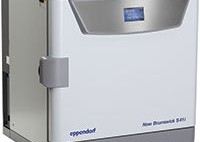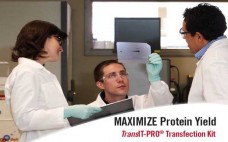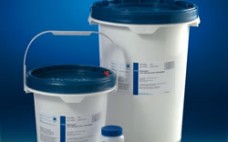This webcast features: Ma Sha This Ask the Expert webcast features Dr. Ma Sha, Director of Technical Applications for Eppendorf, Inc. In this webcast, presented to a live audience on May 6, 2014, he demonstrated the success of large clinical-scale culture of human adipose-derived mesenchymal stem cells (AdMSCs) in a BioBLU 5c single-use bioreactor at 3L scale. You can view the webcast here (Registration Required) Link to paper mentioned in presentation: A Novel Method for the Expansion of Mesenchymal Stem…
Upstream
Bioreactor Monitoring – Best Practices for Cell Counting, Sizing, and Viability
Manufacturers utilizing bioprocesses for production need accurate and reliable tools for monitoring bioreactors. The key parameter that many bioprocess engineers rely on is viable cell density. This is a compound parameter arising from knowledge of the cellular concentration and the total cellular viability. Viable cell density is the mathematical product of these two primary pieces of information. In order to minimize variability, the detection technique of each of the primary measurements (concentration and viability) must be understood separately.
In this educational webcast, Matthew N Rhyner, PhD., Global Analytical Marketing Manager at Beckman Coulter Inc, discusses two of the most powerful techniques for assessing concentration and viability: the Coulter Principle and flow-based imaging. Join Dr. Rhyner as he compares the strengths and weaknesses of these techniques and discusses competing technologies. The webcast concludes with some recommendations for best practices in monitoring cell count, size, and viability.
Mirus TransIT-PRO® Transfection Kit for Biotherapeutic Protein Production
Decrease time to produce usable protein by maximizing target protein yields through transient transfection. The TransIT-PRO® Transfection Kit uses animal origin free components designed for high and reproducible nucleic acid delivery into suspension CHO and 293 derived cells. Since it is compatible with varied media formulations, the same media can be used for both transient and stable expression. The TransIT-PRO outperforms linear PEI in protein yield, while providing a cost-effective alternative to FreeStyle™ MAX and 293Fectin™ Transfection Reagents.
Rapid Development of Chemically Defined Media and Feeds through Replacement of Basal Hydrolysates
Protein hydrolysates are widely used in mammalian cell culture to improve cell growth and recombinant protein production. However, use of the hydrolysates can lead to significant process variability, due to the limited control of their source and final composition during manufacturing. On the other hand, development of chemically defined media and feeds requires a tremendous amount of work, including comprehensive library screening and spent media analysis.
In this educational webcast, Dr. Hao Chen, Associate Principal Scientist, BioProcess Development at Merck, describes a rapid method for developing chemically defined media and feeds for Chinese hamster ovary (CHO) cell lines from existing proprietary media and feeds by the replacement of basal protein hydrolysates with novel supplements. In the case studies presented, Dr. Chen shows that after two rounds of optimization, the protein hydrolysate was successfully replaced. The resulting cell growth, protein productivity, and product quality were similar in the chemically defined and original media. The entire development process was completed within six weeks.
Navigating the Biopharmaceutical Regulatory Pathway: Replacing Undefined Raw Materials with Chemically-defined Substitutes
With market demands increasing, biopharmaceutical producers are constantly looking for ways to enhance product quality while reducing costs and risk. One way to meet these changing demands is to replace animal-derived supplements with chemically-defined substitutes. In this educational webcast, Dr. Michael Titus, Director of Quality Management and Regulatory Compliance with BD Biosciences, outlines the regulatory pathway involved in making such a switch. Dr. Titus will discuss:
• A background on the uses of supplements in the cell culture production process;
• Change control & risk management;
• And the regulatory path of making the switch to chemically-defined supplements.
Join Dr. Titus as he demonstrates how chemically-defined supplements can boost performance, reduce risk and increase consistency in commercially marketed biopharmaceutical products.





